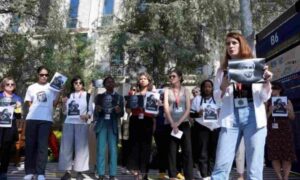A United Arab Emirates (UAE) court on Wednesday sentenced 43 dissidents to life imprisonment for allegedly operating a Muslim Brotherhood group with intentions to commit attacks within the country, according to state news agency WAM.
In addition to the life sentences, eleven other individuals received lesser sentences. Six companies were convicted of money laundering to support a terrorist organization. The UAE’s media office has not yet responded to requests for comment on the verdicts.
The court’s decision can be appealed before the UAE’s Federal Supreme Court, as reported by WAM. Those convicted were identified as members of the Justice and Dignity Committee, a local faction of the Muslim Brotherhood. The UAE designated the Muslim Brotherhood as a terrorist organization in 2014.
According to the court, the group aimed to replicate violent events similar to those seen in other Arab states, including protests and clashes with security forces. However, specific details of their plans were not disclosed.
Human rights organizations, including a coalition with Human Rights Watch, condemned the mass trial, labeling it as “fundamentally unfair” and demanding the immediate overturning of the convictions. Joey Shea, Human Rights Watch’s UAE researcher, criticized the lengthy sentences as unjust and damaging to the UAE’s civil society.
The Emirates Detainees Advocacy Center expressed concerns that the convicted individuals had previously been sentenced in 2013 for their involvement with the same group, potentially violating the principle of double jeopardy, which prohibits being tried twice for the same offense.














